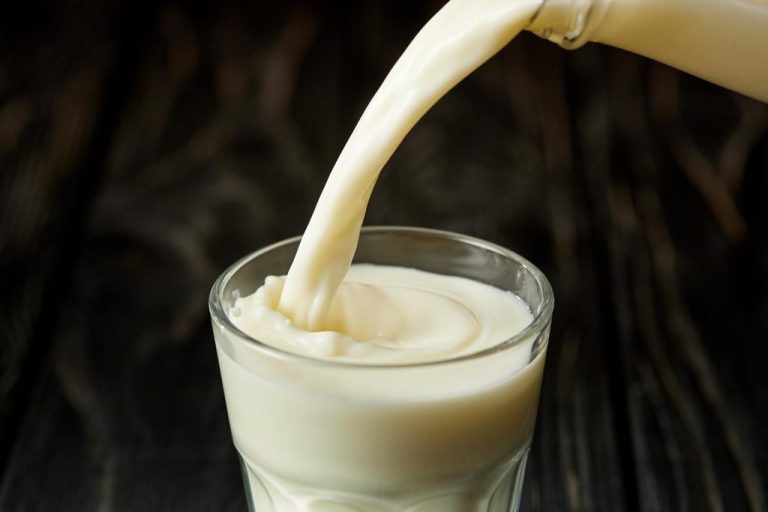Plant-based milk substitutes are in vogue, but hardly anyone knows “lupine milk” – although it would be worth it.
Sweet lupins are old cultivated plants that used to be cultivated in the Mediterranean region as a vegetable source of protein for humans and animals. The seeds of the legumes (pulses) contain a large number of essential amino acids, which makes the protein in sweet lupins particularly valuable.
But lupine milk as a milk substitute and other lupine products can hardly be found on the market. Difficult to understand, since sweet lupins are the unknown domestic competition for soybeans – and have quite a bit ahead of them.
What exactly is lupine milk?
Since lupins are legumes, the round, pea-like seeds of the blue flowering lupine are harvested and dried for the lupine milk. To produce the lupine drink, the seeds are soaked in water for eight hours and then finely ground to create a liquid pulp, the lupine mash. This pulp is then pressed out.
The resulting liquid is the protein-rich lupine milk. The milk substitute is then either fermented or flavored, but can also be processed into lupine tofu or other lupine products.
By the way: Strictly speaking, according to EU legislation, the term “lupine milk” should not be used at all, as the term “milk” is reserved for animal milk from cows, sheep, goats or horses. We use the term in this article as most consumers use it in common parlance. The milk substitute is commercially available as a “lupine drink” or “lupine drink”.
Is lupine milk healthy?
Lupine seeds contain over 40 percent protein, more than soybeans. And this contains all the essential amino acids that are also retained in the lupine milk thanks to the very gentle processing.
The milk alternative made from lupins is therefore one of the highest quality sources of protein in a vegan diet. It is also ideal for allergy sufferers as it contains neither gluten nor lactose, milk protein or soy proteins. And also as the only source of protein, it contains little purine. Lupins are therefore also good for people who suffer from gout, for example.
The seeds also contain minerals such as potassium, magnesium, calcium and iron, which are also present in lupine milk.

